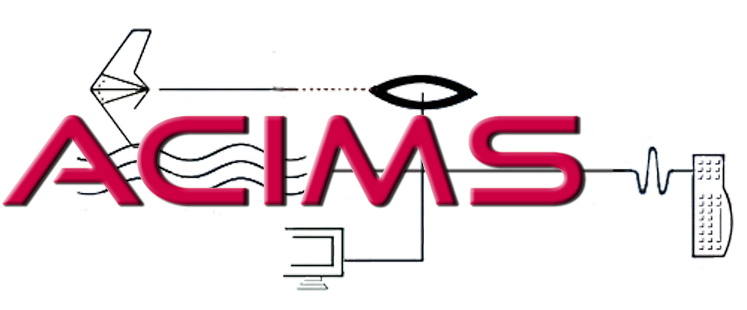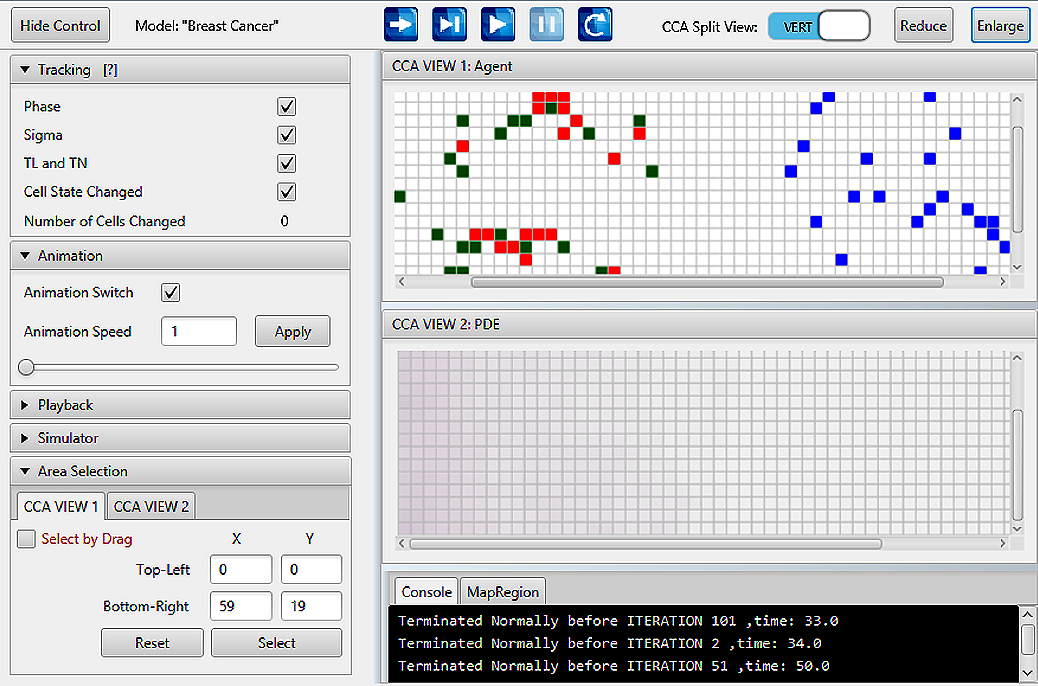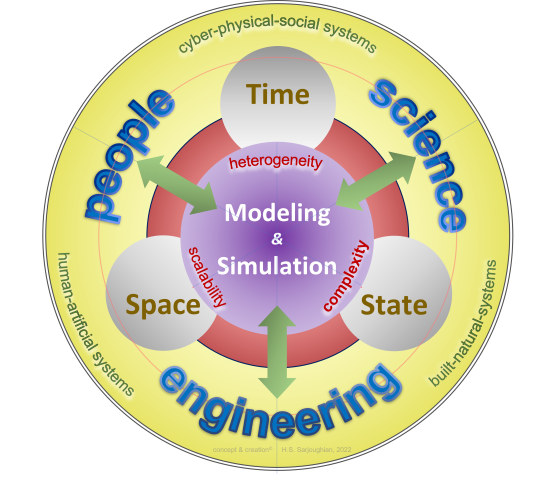Welcome to ACIMS
Welcome to ACIMS
The Arizona Center for Integrative Modeling and Simulation is devoted to research and education that advance the evolution and use of M&S as means to develop disparate partial solutions into coherent, integrated solutions for complex, multifaceted problems.

Simulating spatiotemporal phenomena
People, sciences, and engineering collectively shape the many kinds of intrinsically coupled natural, built, and artificial systems.
Time, space, and state concepts are integral to understanding the sustainability and resiliency of existing and evolving complex systems.
At ACIMS, research on modeling concepts, theories, and methodologies supported with the development of simulation frameworks and tools are being pursued rigorously, systematically, and flexibly created to experiment and evaluate adaptive systems’ complexity, heterogeneity, and scalability traits.

Human Breast Cancer Co-simulation: composition of agent and diffusion composable cellular automata models enabled by a Knowledge Interchange Broker (KIB) interaction model with implementation in the DEVS-Suite simulator. Simulation of this model (a 150×100 coupled CCA Diffusion) for 100 logical steps takes ~320 seconds using a Win 10 computer that has i7 2.60 GHz CPU and 64 GB RAM.
Modeling and Simulation Tools and Frameworks

DEVS-Suite: it is a Parallel DEVS simulator with support for (i) automating the design of experiments in combination with (ii) animating models and (iii) generating superdense time data trajectories at run-time, and (iv) synchronized viewing of time-based trajectories alongside hierarchical component and I/O messaging animation.
PVM: This is a novel visual and persistent RESTful tool for creating modular and hierarchical component models. The tool separates while synchronizing the complementary visual and persistent models. Models can be independently and visually explored at multiple hierarchy levels and stored in MongoDB. The tool displays the structural metrics for any component at any level in its hierarchy.
CoSMoSim: it offers an integrated platform for system model development, simulation, & experimentation. It has a unified logical, visual, and persistent capability for specifying families of parallel DEVS, CA, & XML-Schema models. The DEVS-Suite simulator version 2.1.0 is integrated into CoSMoS.
DEVS-Suite Simulator
Version 7.0.0, released January 2023.
Predictive planning for water-energy systems: Composable Modeling & Interoperable Simulator Framework
A general composable, RESTful modeling and interoperable simulation framework supporting long-term planning of water-energy systems at realistic scales. It enables development of water, energy, and their interaction models: Componentized WEAP, Knowledge Interchange Broker (KIB), and Componentized LEAP. The interactions between the water and energy models can be modeled and simulated with the WEAP-KIB-LEAP framework.
The Componentized WEAP and Componentized LEAP are RESTful frameworks written in NodeJS for the Water Evaluation and Planning (WEAP) and the Low Emissions Analysis Platform (LEAP) Systems. More information is available here.
Componentized WEAP Simulator
Version: 1.0, released May 28, 2020
Componentized LEAP Simulator
Version: 1.0, released February 2, 2021
Additional frameworks and tools are available. See the Frameworks and Tools menu for details.
Recent News
Software Releases
- DEVS-Suite Receives SourceForge Community Choice AwardSnippets from SourceForge announcment: “DEVS-Suite Simulator has been recognized with a Community Choice award by SourceForge. This honor is awarded only to select projects that have reached significant milestones in
- New DEVS-Suite 6.1.0 is releasedThe latest version is available at https://acims.asu.edu/software/devs-suite/ [April 2021].
- New DEVS-Suite 5.0.0 is releasedThe latest version is available at https://acims.asu.edu/software/devs-suite/ [July 2019].
Lab News
- DEVS-Suite Receives SourceForge Community Choice AwardSnippets from SourceForge announcment: “DEVS-Suite Simulator has been recognized with a Community Choice award by SourceForge. This honor is awarded only to select projects that have reached significant milestones in
- IEEE Computer Distinguished Visitor ProgramBernard Zeigler will serve a two-year term in the IEEE Computer Distinguished Visitors Program (2019-2021).
- Book Translation in ChineseGuide to Modeling and Simulation of Systems of Systems (2nd ed.) is available in Chinese (https://item.jd.com/28448243733.html).
